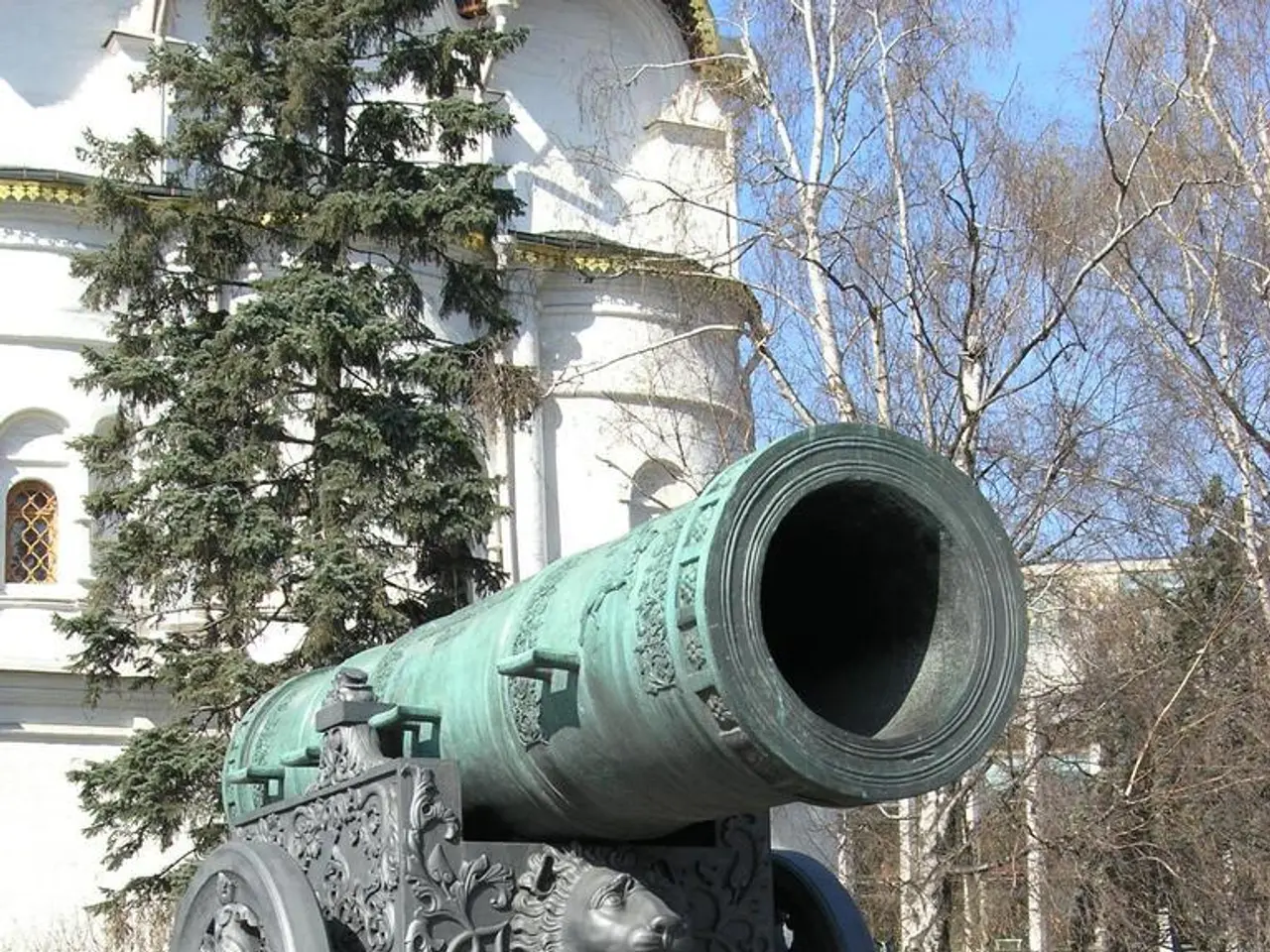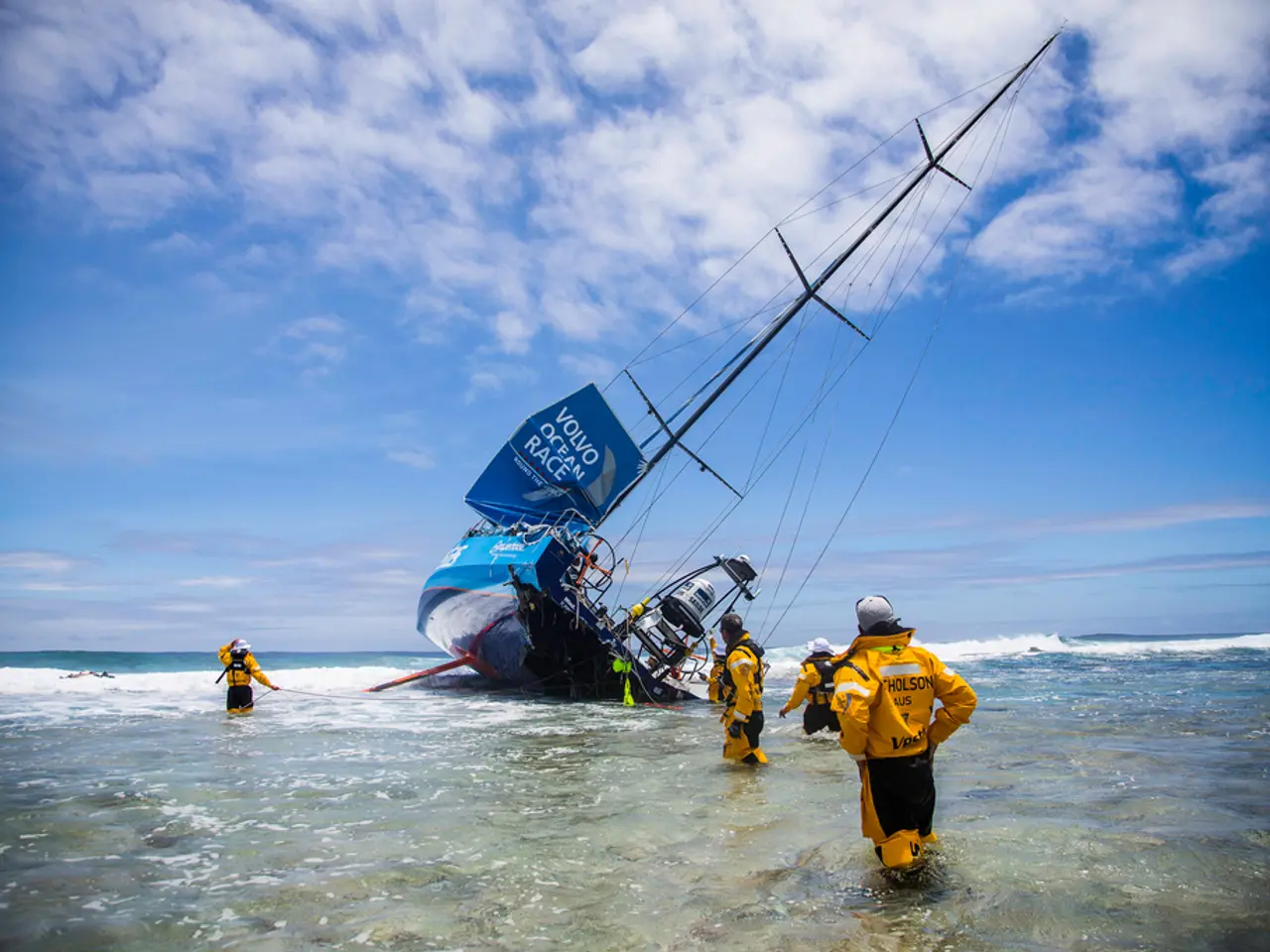"Russian special forces have already infiltrated the Baltic States, indicating a potential imminent attack by Putin, according to Britain's observations."
In an interview with La Repubblica, military analyst Michael Clarke has predicted that Russian leader Vladimir Putin may launch an attack on the Baltic States by the end of this decade. The goal, according to Clarke, is not to invade these countries, but to assert control and secure a strategic position in the region.
Clarke suggests that Putin aims to concentrate Russian military forces in the Baltic region, preventing Ukraine from supporting the Baltic States in case of conflict. This would ensure that Ukraine is rendered helpless against Russian expansion and unable to assist allies like Poland, Finland, and the Baltic States if Russia attacks those areas.
Putin's broader strategy, as outlined by Clarke, includes demilitarizing Ukraine, enforcing its neutrality, and prohibiting anti-Russian groups or parties within Ukraine. This objective seeks to secure Russia’s western borders and consolidate its influence, while also demonstrating military strength and manipulating narratives about the war’s progress.
Furthermore, Western analysts and officials perceive Putin’s ambitions as extending beyond Ukraine to the Baltic States. The potential aggression in the Baltics is viewed as a way to discredit NATO's credibility, making the alliance appear weak or a "paper tiger." This strategic aim aligns with fears prompting Baltic and neighboring states to bolster defenses amid concerns about preemptive Russian strikes.
If NATO does not react to Putin's potential aggression in the Baltics, Putin may use the opportunity to assert that Russia is more protective than the West. He may tell European countries that "the West doesn't want to protect you," implying that Russia does. This could further erode NATO's deterrence capacity and strengthen Russia's regional dominance.
It's important to note that Putin's attack on the Baltic States is not contingent on the outcome of the conflict in Ukraine. The Russian leader may see this as an independent strategic move to assert control and military advantage in the Baltics, preventing a coordinated Western defense aligned with Ukraine, and solidifying Russia’s regional dominance.
In conclusion, Putin's potential aggression towards the Baltic States poses a significant threat to NATO's deterrence capacity. It's crucial for NATO to remain vigilant and prepared to respond effectively to any potential aggression from Russia.
Politics and general news are abuzz with the potential impact of the war-and-conflicts in Ukraine on the geopolitical landscape, with analysts suggesting that Russian leader Vladimir Putin may aim to extend his control to the Baltic States. This strategy, according to experts, includes preventing Ukraine from supporting the Baltic States in case of conflict, thereby rendering Ukraine unable to assist its allies like Poland, Finland, and the Baltic States if Russia attacks these areas. The broader objective of this move, as outlined, is to secure Russia’s western borders, consolidate its influence, and potentially discredit NATO's credibility, making the alliance appear weak or a "paper tiger."








